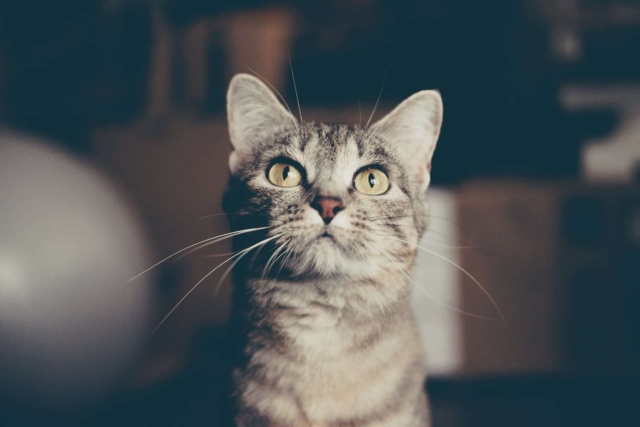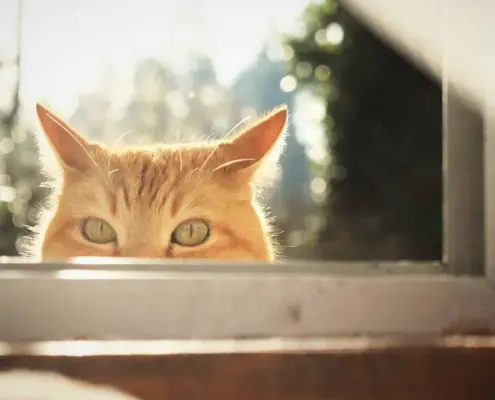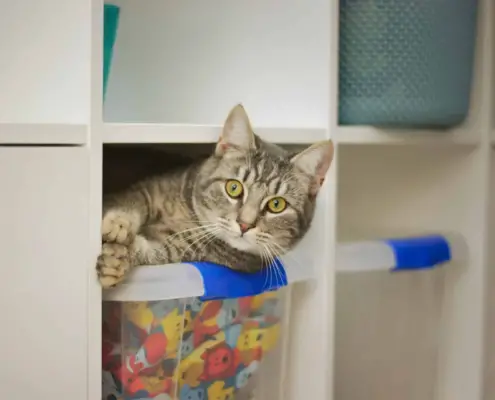
Cats have always been known for their mysterious and enigmatic nature, captivating humans with their elegance and grace. One question that has intrigued many cat lovers is whether these creatures have an appreciation for music. Can they truly understand and enjoy the melodies that we humans find so captivating? In this article, we delve into the fascinating world of feline perception of sound and explore whether cats have a melodic ear for music.
The science behind cats’ perception of sound
To understand whether cats can truly appreciate music, it is essential to explore the science behind their perception of sound. Cats possess an exceptional auditory system that allows them to detect a wide range of frequencies and nuances in sound. Their ears are designed to capture even the faintest of sounds, making them highly sensitive to variations in pitch and tone. This acute sense of hearing is believed to be an evolutionary adaptation that helped cats survive in the wild. However, it remains uncertain whether their perception of sound extends to the realm of music.
Do cats have a preference for certain types of music?
As we delve deeper into the question of whether cats enjoy music, it is crucial to consider whether they have a preference for certain types of music. Studies have shown that cats may have a particular fondness for classical music. The soothing and melodic tones of composers such as Mozart and Bach seem to resonate with these feline creatures. Classical music is characterized by its gentle and harmonious melodies, which may help create a calming and peaceful environment for cats. However, it is important to note that individual preferences may vary, and not all cats may respond to classical music in the same way.
Music therapy for cats: Does it really work?
Music therapy has gained popularity as a holistic approach to promoting relaxation and well-being in humans. But can it have the same effect on our feline friends? Some experts believe that cats can benefit from music therapy, as it can help reduce stress and anxiety. Soft and calming music has been found to have a soothing effect on cats, creating a tranquil ambiance that promotes relaxation. However, the effectiveness of music therapy may vary from cat to cat, and it is important to observe their individual response to different types of music.
The role of vocalizations in cats’ response to music
Cats are known for their wide range of vocalizations, from gentle purring to fierce meowing. These vocalizations play a significant role in their communication with humans and other animals. When it comes to music, cats may respond differently depending on the vocalizations present in the composition. Studies have shown that cats are more likely to react to music that contains frequencies similar to their own vocalizations. This suggests that the presence of familiar sounds in music may capture their attention and elicit a response.
Observing cats’ behavior during music playback
To determine whether cats truly enjoy music, it is essential to observe their behavior during music playback. Some cats may show signs of relaxation and contentment when exposed to certain types of music, while others may exhibit signs of agitation or indifference. It is important to pay attention to their body language, such as tail movement, ear position, and overall demeanor. Additionally, observing whether cats seek out or avoid certain areas where music is playing can provide valuable insights into their preferences.
Factors that may influence cats’ reaction to music
Several factors may influence cats’ reaction to music. One such factor is the volume of the music. Cats have a highly sensitive sense of hearing, and loud or sudden noises can startle or distress them. Playing music at a moderate volume is recommended to create a comfortable and enjoyable listening experience for cats. Another factor to consider is the tempo and rhythm of the music. Cats may respond differently to slow, soothing melodies compared to fast-paced, energetic tunes. Experimenting with different styles of music can help identify the preferences of individual cats.
Tips for creating a cat-friendly music playlist
Creating a cat-friendly music playlist requires careful consideration of various factors. Firstly, choosing music with soft and melodic tones can help create a relaxing atmosphere for cats. Classical music, ambient sounds, and nature-inspired compositions are often well-received by feline ears. Secondly, it is important to avoid sudden or jarring sounds that may startle or frighten cats. Lastly, incorporating familiar sounds, such as gentle purring or chirping birds, can help capture their attention and create a sense of familiarity.
Exploring alternative forms of music for cats
While classical music may be a popular choice for creating a cat-friendly playlist, it is worth exploring alternative forms of music that may resonate with our feline friends. Some cats may respond positively to modern compositions that incorporate electronic or ambient sounds. Others may find solace in nature-inspired music that mimics the sounds of birds chirping or waves crashing. Experimenting with different genres and styles can help uncover the unique preferences of individual cats.
Understanding cats’ unique perspectives on music
In conclusion, the question of whether cats enjoy music remains a subject of debate among experts and cat lovers alike. While cats may not experience music in the same way humans do, they do possess a unique perception of sound that makes them sensitive to the nuances of melodies. By observing their behavior and preferences, we can gain insights into their unique perspectives on music. Whether it is classical compositions, ambient sounds, or nature-inspired melodies, creating a cat-friendly music playlist can help enhance their environment and promote their well-being.
If you enjoyed my article, I would appreciate you sharing it with your network.

Sima Ndlebe
Sima writes for CatBuzz. He is interested in Cats, Health and Fitness, and Entrepreneurship.
Published: 15 November 2023




